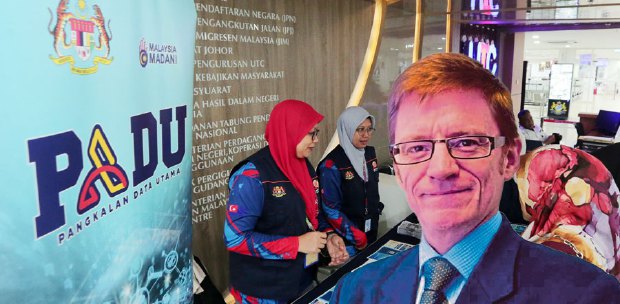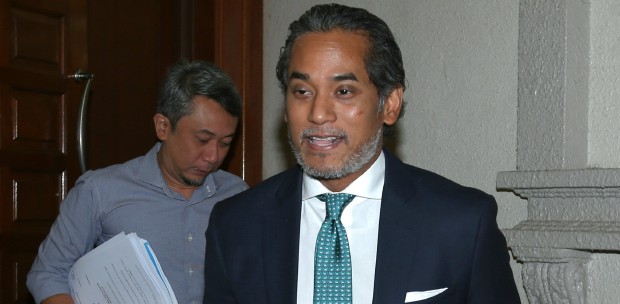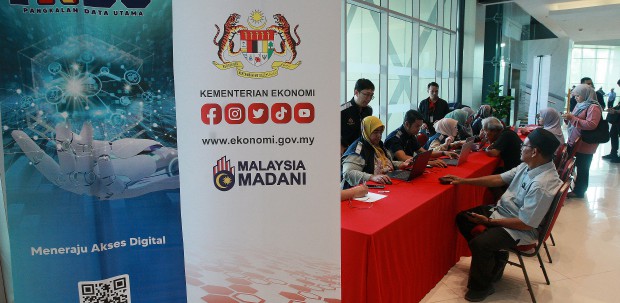KUALA LUMPUR: A clear timeline for the implementation of targeted fuel subsidies and any other policies will help prevent misunderstandings and facilitate preparation by all parties, economists said.
This will help businesses and consumers to set a realistic expectation on what might happen to their livelihood, they added.
Bank Muamalat Malaysia Bhd chief economist Dr Mohd Afzanizam Abdul Rashid said a clear timeline would help businesses and consumers to plan and set aside resources to accomodate the expected increase in prices.
In other words, a clear timeline will reduce uncertainties and allow the government to manage sentiments.
"I think the government has clearly indicated in their messaging through the budget announcement where we saw lower allocation in subsidies and the implementation of the Central Database Hub (Padu) with a clear goal to give subsidies to those who are deserving.
"What's left now is the actual implementation date. This is a bit unclear. A clear implementation date is important. Beyond that is to ensure whatever system that the government is planning to do has to be effective and efficient," he told Business Times.
Afzanizam stressed that the government need to also ensure a clear and consistent communication on the justification of the subsidy ratinalisation.
He noted that data is crucial and it must be shared with the relevant stakeholders such as economists, analysts, fund managers, businesses and the general public so that the narratives become more credible and convincing.
"There's going to be a trade off such as higher prices and anxiety in the economy. But with clear intention, I think, over time, people will understand," he said.
Economist Dr Geoffrey Williams opined that good communications are key to getting public buy-in and currently there is too much secrecy surrounding the subsidy mechanism.
He added that economic experts cannot help people to understand what is happening if they are also kept in the dark.
"There should be wider inclusion of experts so that we know what is happening. We do not know who is dealing with the subsidy rationalisation plan, who is giving advice or who is designing the policies. We do not know whether this advice is independent or not.
"There appears to be very little involvement of independent economists in general, so we do not know what is being proposed or why specific options are chosen over other options. We also cannot explain delays if we do not know the current status.
"There is also no clear philosophy for subsidy rationalisation available to the wider stakeholder groups who are affected. There should be some focus on this too," he said.
Nevertheless, Williams noted that the government has begun streamlining subsidies by establishing Padu for data-driven targeting and initiating adjustments in electricity prices.
He pointed out that this indicates the process has already commenced, and the economic conditions are stable, making it a "good time" to proceed.
However, he cautioned against removing subsidies too quickly as it could destabilise the economy.
Additionally, Williams also suggested that subsidy reform should not adhere to a fixed schedule but should instead prioritise removing subsidies when it is most practical, starting with the easiest to remove and those with the greatest impact.
He added that there is a significant amount of wastage, leakage and corruption within the subsidy system, which all need to be addressed.
"The scope of subsidies in Malaysia is very wide, of course the biggest share is petrol and diesel, but the balance covers a huge range of programmes for special groups such as farmers, fishermen and families.
"Removing the social subsidies reduces opportunities for patronage and reduces ministry budgets. So, there is political pushback. The economic solution is to replace subsidies on products and services with direct cash transfers, a form of Universal Basic Income through a targeted system like Padu.
"This provides meaningful, structural reform but we are at the point where this can happen and it has been implemented very quickly actually," he noted.
Centre for Market Education chief executive officer Dr Carmelo Ferlito pointed out that the significant issue does not only lie in the timeline but also in the mechanism of subsidy implementation.
He said the government has made many announcements in the past months, but the implementation stage has always been slow or very vague, remaining in the air.
When policies are announced, it is important that not only the policy targets are announced, but also the timeline and the mechanism of implementation are explained, he added.
Otherwise, a policy or strategy remains little more than a wishlist.
"We must remember that when a policy is announced, it creates expectations. Businesses, households and economic agencies need to prepare for what is about to come. So, I must say, not only is the timeline crucial, but also the content of the policies, and how the rationalisation is going to be implemented.
"This is so that economic agents can start to get ready and develop their strategies according to what the government is going to do," he said.
Ferlito also noted that when people are kept in the dark, it becomes impossible to evaluate the effects of those policies because there is a lack of information about the timeline and the mechanism.
He stressed that it is important for the government to minimise announcements to avoid creating false expectations, especially if they are still in the "study" phase.
He added that false expectations can harm multiple parties, such as businesses, investors, and economic decision-makers.
"Therefore, I believe announcements should be made when ideas are clear, ensuring that policy and its consequences can work together consistently. The first step to achieve this balance is to publish a public document explaining the mechanism," he said.
Previously, former minister Khairy Jamaluddin called on the government to provide a clear timeline for subsidy rationalisation.
He said it is important to give early signals about economic management and its effects on people's finances, including projected government revenue and fiscal management.
Economy Minister Rafizi Ramli had previously announced that the targeted subsidy distribution mechanism could roll out as early as the second quarter of this year.
He was quoted saying that his team is currently using the first quarter to analyse data gathered from Padu, ensuring the streamlined delivery of targeted subsidies.
In a recent interview with Bloomberg, Prime Minister Datuk Seri Anwar Ibrahim reiterated the necessity of trimming wasteful spending, emphasising the importance of reducing excessive subsidies.
However, he refrained from committing to a specific timeline for phasing out fuel subsidies.





